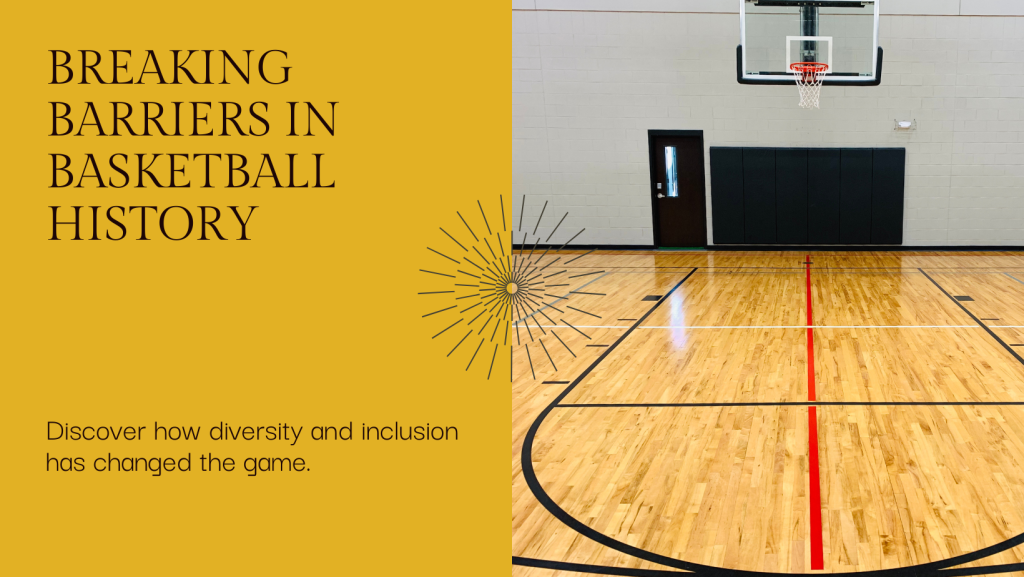Breaking Barriers: The Impact of Diversity and Inclusion in Basketball History

Basketball has a long history of fostering diversity and inclusivity both on and off the court, shattering barriers and dispelling prejudices. It also serves as a platform for social change. Basketball has been key in furthering the cause of social justice and equality, from the early pioneers who cleared the path for later generations to the trailblazers who still struggle for equality and representation.
Racial segregation and prejudice were pervasive in the early days of basketball, and African American players faced considerable obstacles to recognition and involvement. Despite these obstacles, trailblazers like Nat “Sweetwater” Clifton, Chuck Cooper, and Earl Lloyd broke through the color barrier in the NBA in the 1950s, opening the door for more African American players to succeed in the sport in the future.
Basketball players made major contributions to the game from a wide range of racial, ethnic, and cultural backgrounds during the second half of the 20th century, contributing to the game’s expanding diversity. Basketball players like Manu Ginobili, Dirk Nowitzki, and Yao Ming inspired millions of fans worldwide and showed how the game can bring people together from various backgrounds. They also contributed to the globalization of the sport.
Basketball has been a major force in advancing not just ethnic diversity but also gender equality and inclusivity. The Women’s National Basketball Association (WNBA) was founded in 1997 as a result of the expansion of women’s basketball in the 20th century, which gave female athletes the chance to compete at the top levels of the sport and display their talent.
Basketball players, coaches, and organizations use their platforms to promote equality, diversity, and inclusion in the game today, continuing to use basketball as a vehicle for social change and advancement. Basketball’s influence goes well beyond the court, encouraging good change and fostering a more open and equitable society through everything from lending support to neighborhood projects and community programs to standing up against injustice and discrimination.
In summary, the history of basketball demonstrates the ability of the game to dismantle obstacles, dispel myths, and advance inclusivity and diversity. Basketball has been a major force in furthering social justice and equality, encouraging generations of players and fans to dream big and work toward a better society. It has done this by breaking down barriers of color and improving gender equality.


